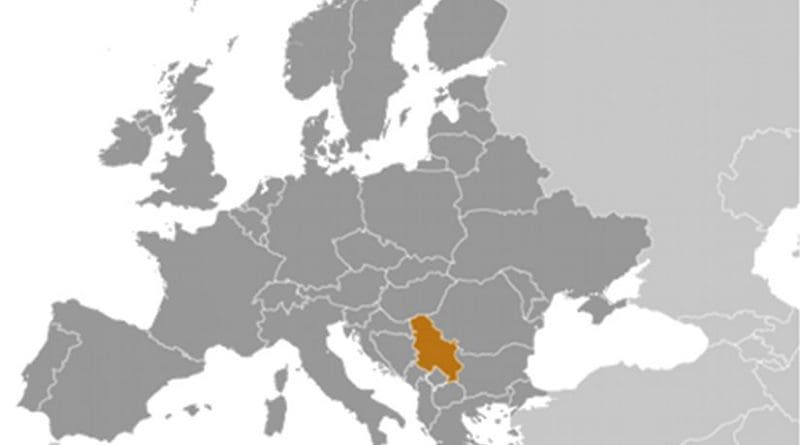Macedonia, Serbia Anticipate New Refugee Wave
By Sasa Dragojlo and Sinisa Jakov Marusic
A new wave of about 2,000 refugees is shortly expected to reach Presevo, in southern Serbia, on the border with Macedonia, the local Red Cross said.
A new wave of refugees is expected to reach the refugee reception centre in Presevo in southern Serbia, the Red Cross in Presevo said on Tuesday.
“At the moment, we have about 500 refugees but we have an information that during the day about 2,000 more will arrive,” Ahmet Halimi, Secretary of the Red Cross in Presevo, said on Tuesday.
He added that the centre is ready to welcome them and they have enough food and water for three to four days.
According to the UN refugee agency, UNHCR, about 7,000 refugees entered Serbia from Macedonia in the last three days.
Fahmi Mustafa, Mayor of Presevo, said around 60,000 people had received help in food and hygiene products in Presevo so far.
Almost all the migrants arriving from the border with Macedonia leave for Belgrade in order to continue their journey towards Hungary and other EU countries.
It is expected that on Tuesday night about 1,000 refugees will cross the Serbian border with Hungary, looking to continue their way to wealthier EU countries.
They are due to arrive on buses from the capital Belgrade in Subotica in the north, where most will quickly move on in buses to Kanjiza, a town close to the border with Hungary.
The Hungarian government on Tuesday meanwhile submitted a draft law on “sealing” the border of with Serbia after the installation of a fence along the border in July.
“The criminal law will be tightened in the work of legislation against human trafficking, while the procedures towards migrants will be faster and more efficient,” Robert Repasi, Hungarian State Secretary in the Ministry of Justice, said.
Aleksandar Vucic, the Serbian Prime Minister, on Tuesday said in an interview for the German newspaper Handelsblatt that Europe must find a joint solution for the “migrant crisis” and that border fences will not help.
“Fences do not solve any problem in Europe. Immigrants will easily find other routes to Western Europe. Unfortunately, Hungary’s fence reminds us of our past in Eastern Europe,” Vucic said.
Last week saw chaotic scenes near the southern Macedonian border at Gevgelija with clashes between refugees who broke through police lines to enter the country and Macedonian police who used stun grenades to stop them.
The situation normalised on Sunday when Macedonia laid on trains and buses to help transport the arriving refugees to the northern border with Serbia.
The Macedonian authorities have complained that they are not getting much help from the EU in dealing with a complicated situation. They said they were doing everything in their power to organize the relief effort and transport of refugees towards the border with Serbia.
According to UNHCR statistics, since the start of the year almost 300,000 people have crossed the Mediterranean.
Of that number, 181,000 landed in Greece seeking to continue their journey trough Macedonia, Serbia, Hungary and then Western Europe. Around 66,500 refugees, mostly from the Middle East, have reached Serbia this year.

